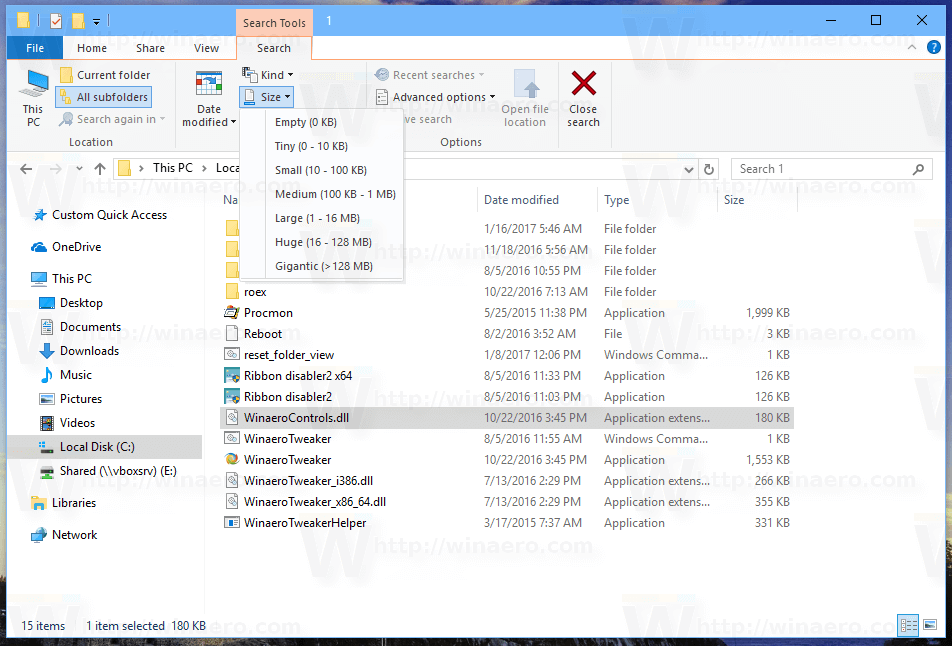

- #HOW TO SEARCH FILES IN WINDOWS 10 BY SIZE HOW TO#
- #HOW TO SEARCH FILES IN WINDOWS 10 BY SIZE .EXE#
- #HOW TO SEARCH FILES IN WINDOWS 10 BY SIZE OFFLINE#
Here is how to compress a folder: compact /c "full path of folder" To uncompress a file, run the command compact /u "full path of file" To compress a single file, execute the command: compact /c "full path of file" Run the app without parameters to see the compression state of the current directory and any files it contains. The directory where Windows is installed.įilename Specifies a pattern, file, or directory.
#HOW TO SEARCH FILES IN WINDOWS 10 BY SIZE OFFLINE#
WinDir Used with /CompactOs:query, when querying the offline OS. Never - Uncompress all OS binaries and set the system state to nonĬompact which remains unless administrator changes it. Which remains unless administrator changes it. Query - Query the system's Compact state.Īlways - Compress all OS binaries and set the system state to Compact

CompactOs Set or query the system's compression state.
#HOW TO SEARCH FILES IN WINDOWS 10 BY SIZE .EXE#
EXE Use compression optimized for executable files which are readįrequently and not modified. Q Reports only the most essential information. F Forces the compress operation on all specified files, even By default, COMPACT stops when an error is I Continues performing the specified operation even after errors

A Displays files with the hidden or system attributes. S Performs the specified operation on files in the givenĭirectory and all subdirectories. EXE is specified, only files compressed as executables willīe uncompressed if this is omitted, only NTFS compressed So that files added afterward will not be compressed. So that files added afterward will be compressed unless /EXE The compact.exe app supports the following command line switches and options. Compress files and folders in Windows 10 with Compact Windows 10 comes with a console utility "compact" which can be used to compress individual files and folders. To uncompress the file or folder, untick the checkbox Compress contents to save disk space using the sequence described above and you are done. If you selected a folder, the following dialog will appear: There, you need to choose "Apply changes to this folder only" or "Apply changes to this folder, subfolders and files".


 0 kommentar(er)
0 kommentar(er)
